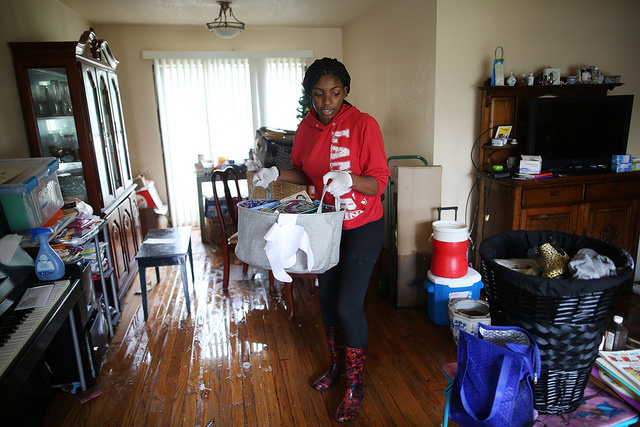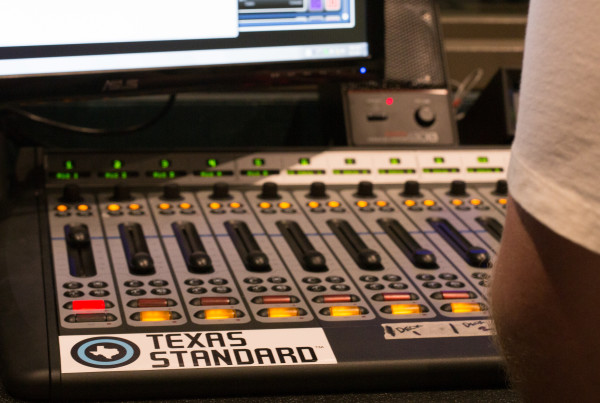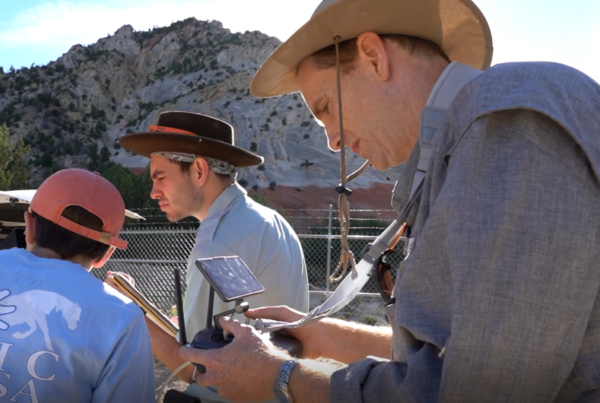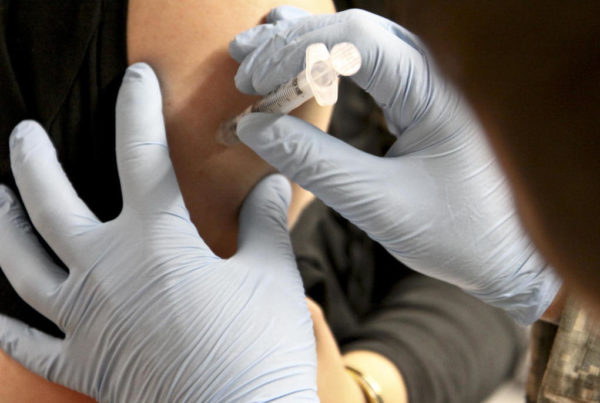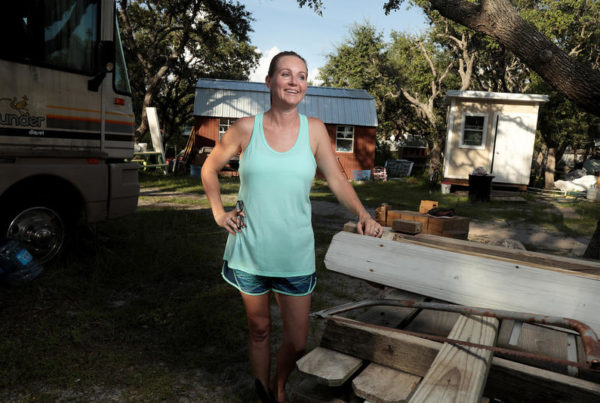The Standard’s news roundup gives you a quick hit of interesting, sometimes irreverent, and breaking news stories from all over the state.
A report out Thursday finds some Texans are still struggling to recover almost one year after Hurricane Harvey.
The Kaiser Family Foundation and the Episcopal Health Foundation in Houston surveyed more than 1,600 residents in 24 hard-hit counties. Sixty percent of respondents say the storm directly affected them.
“And then 70 percent of those said they were back to normal, versus 44 percent who had said they were back to normal when we surveyed just a couple of months after,” says Elena Marks, president and CEO of the Episcopal Health Foundation.
Marks explains that while most respondents say they’re getting back on track after the storm, some groups are having a harder time than others. For example, 60 percent of black residents say they’re not getting the help they need. The same goes for 50 percent of those with incomes below 200 percent of the federal poverty level.
“If you are low-income or adversely impacted by structural racism before the storm, you’re still impacted by poverty and racism after the storm, and it’s not surprising that groups that were disadvantaged previously aren’t recovering as well,” Marks says.
Marks adds, “When I look at this data and when I look at all data about storms or any kind of adverse event, what it does is reveal the underlying conditions more starkly than what we’re faced with on a regular basis.”
Marks hopes this report will serve as a guide for the government and nonprofits tasked with providing ongoing assistance after Harvey.
“And those organizations that are responsible for getting resources people need to understand who was most severely impacted and they need to reach out to those groups and not just hope they’re going to show up asking for resources,” Marks says.
The report also found that 30 percent of affected residents say the storm had negative effects on their mental health, but less than eight percent received any services to address this.
The Governor’s Office announced it is giving Santa Fe Independent School Distric $1.8 million for counseling services.
Claire McInerny of KUT Austin reports:
The money will help the city of Santa Fe create a new “resiliency center” as well as provide ongoing counseling for the community. The resiliency center, run through the city, will have trauma-informed experts on staff to help people in the aftermath of May’s school shooting. The school district will receive three new counselors and a family-and-marriage counselor to serve students and staff. The state previously gave the community more than $5 million for services after the shooting, including mental-health services, school-safety training and active- shooter training.
Vice President Mike Pence is spending the second leg of his two-day trip to Texas discussing the Trump administration’s plans for NASA. He’s speaking about the future of space exploration at the Johnson Space Center in Houston. The vice president arrived in Texas Wednesday to commemorate the anniversary of Hurricane Harvey and learn about recovery efforts.
Vice President Pence tweeted:
Nearly one year after Hurricane Harvey devastated the area – we are going to continue to work with @GovAbbott and with Texas to rebuild until the job is done. pic.twitter.com/bR6e8tK1BW
— Vice President Mike Pence (@VP) August 23, 2018


